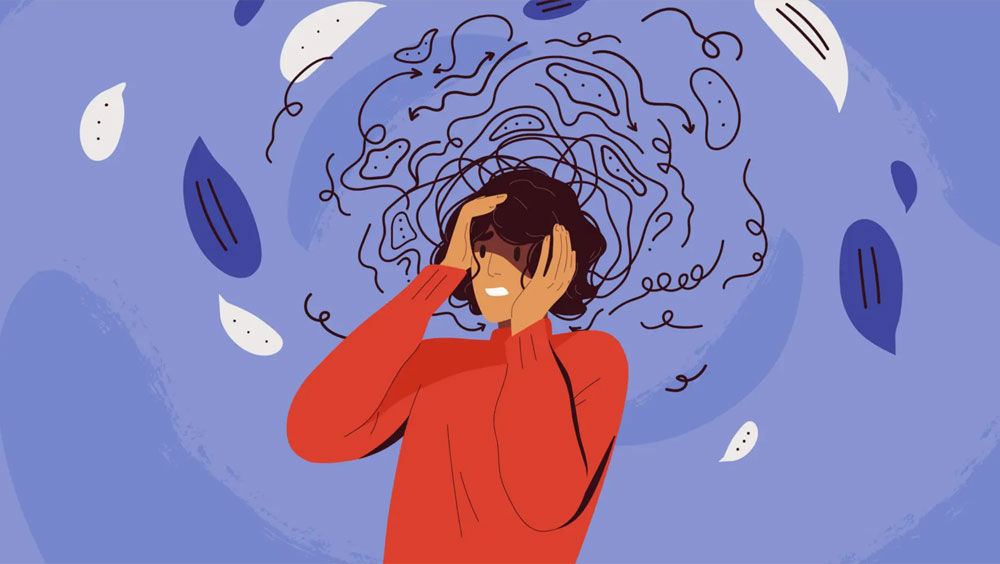Anxiety often weaves itself into the fabric of our daily existence, subtly amplifying our worries and fears. While it's a natural response to life's challenges, certain routines and behaviors can intensify these feelings, leaving us trapped in a cycle of stress and unease. From the subtle drain of procrastination to the jittery heights of caffeine overindulgence, these habits can unknowingly fuel our anxiety instead of alleviating it. In this article, we delve into 12 prevalent behaviors that can exacerbate anxiety and offer practical strategies to overcome them, helping you foster a serene and centered mindset.
Irregular Sleep Patterns
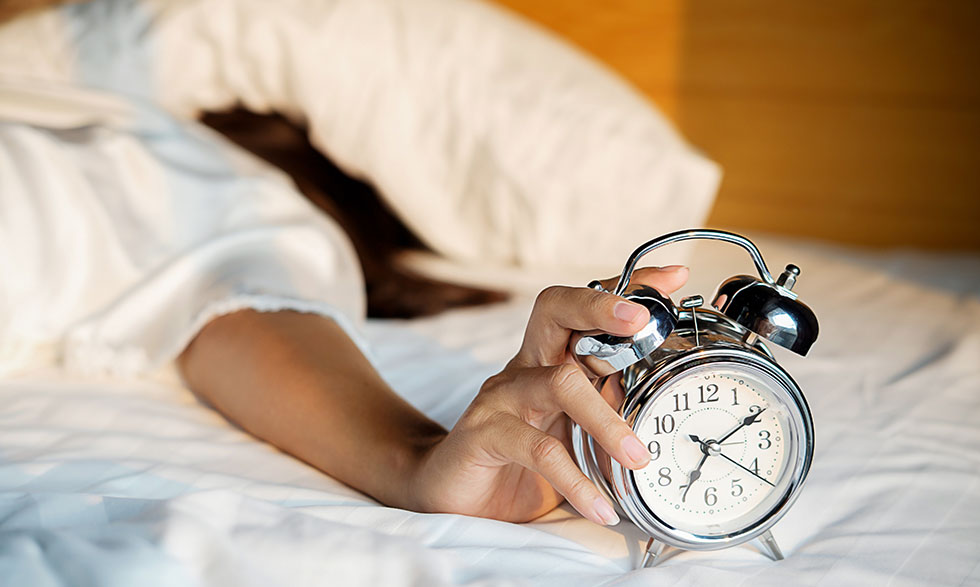
Additionally, poor sleep hygiene can disrupt the body's natural circadian rhythm, which plays a vital role in regulating hormones that influence mood and stress levels. This disruption can lead to increased production of cortisol, commonly known as the stress hormone, further exacerbating feelings of anxiety. Moreover, lack of quality sleep can impair cognitive function, making it challenging to concentrate, solve problems, or cope effectively with daily stressors. Over time, this can create a vicious cycle, where heightened anxiety leads to further sleep disturbances, perpetuating a downward spiral. Establishing a regular sleep schedule and creating a calming bedtime routine can be powerful steps in breaking this cycle, allowing for improved emotional regulation and resilience against anxiety..
Overconsumption Of Caffeine
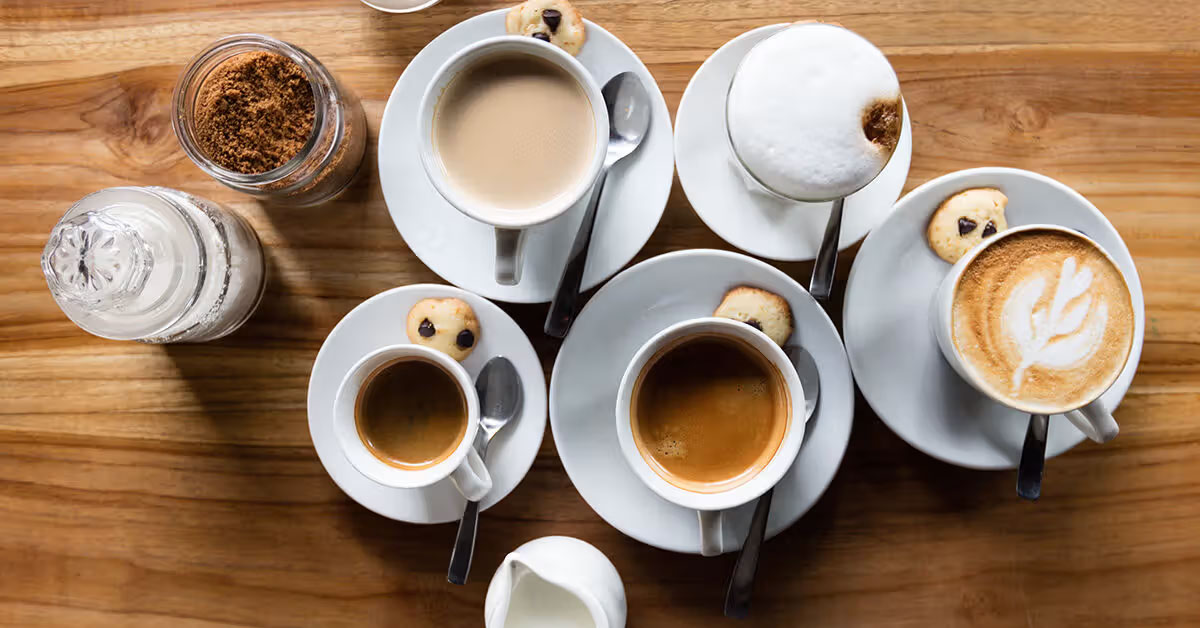
Another detrimental habit is consuming excessive caffeine. While a cup of coffee can kickstart your day, too much caffeine can lead to jitteriness, which may mimic or exacerbate symptoms of anxiety. If you're struggling with anxiety, consider scaling back your caffeine intake. Reducing your caffeine consumption could lead to more stable energy levels throughout the day, improving both focus and mood. Replacing caffeinated drinks with alternatives such as herbal teas or decaffeinated coffee may help ease the transition while still providing a comforting ritual. Additionally, understanding how caffeine affects your body can empower you to make mindful choices about when and how much to consume. Making these changes could contribute not just to decreased anxiety symptoms, but to an overall enhancement of your mental and physical well-being..
Withdrawing From Social Interactions

Social withdrawal, while seemingly a refuge for those grappling with anxiety, often serves only to deepen the chasm between individuals and the connections they inherently need to thrive. This habit, though comforting in its immediacy, establishes a cycle that can exacerbate the very emotions one seeks to escape. By retreating from the social sphere, individuals miss out on opportunities for positive reinforcement through supportive interactions, leaving them vulnerable to a spiraling sense of loneliness. Over time, the avoidance that promises short-lived peace transforms into a barrier, obstructing the pathways to resilience and self-assurance that are often cultivated through engaging with others. Therefore, breaking free from this pattern of avoidance is crucial, not only to disrupt the isolation but also to pave the way for personal growth and healthier relationships, fostering environments where anxiety is met with understanding and empathy rather than solitude..
Constant Checking Of Emails And Social Media

Constantly being tethered to email and social media creates a perpetual state of alertness, where the mind is never fully at rest. The relentless stream of notifications and updates fosters a sense of urgency, blurring the boundaries between work and personal time. This habitual checking can also cultivate an unhealthy comparison with others, as curated snapshots of lives online often amplify feelings of inadequacy or failure. The quest for immediate responses and validation further compounds stress, creating a cycle that can be difficult to break. Over time, this behavior not only exacerbates anxiety but also impedes productivity and creativity, as the mind is too consumed with reactive thinking to engage in deeper, more meaningful tasks..
Procrastination
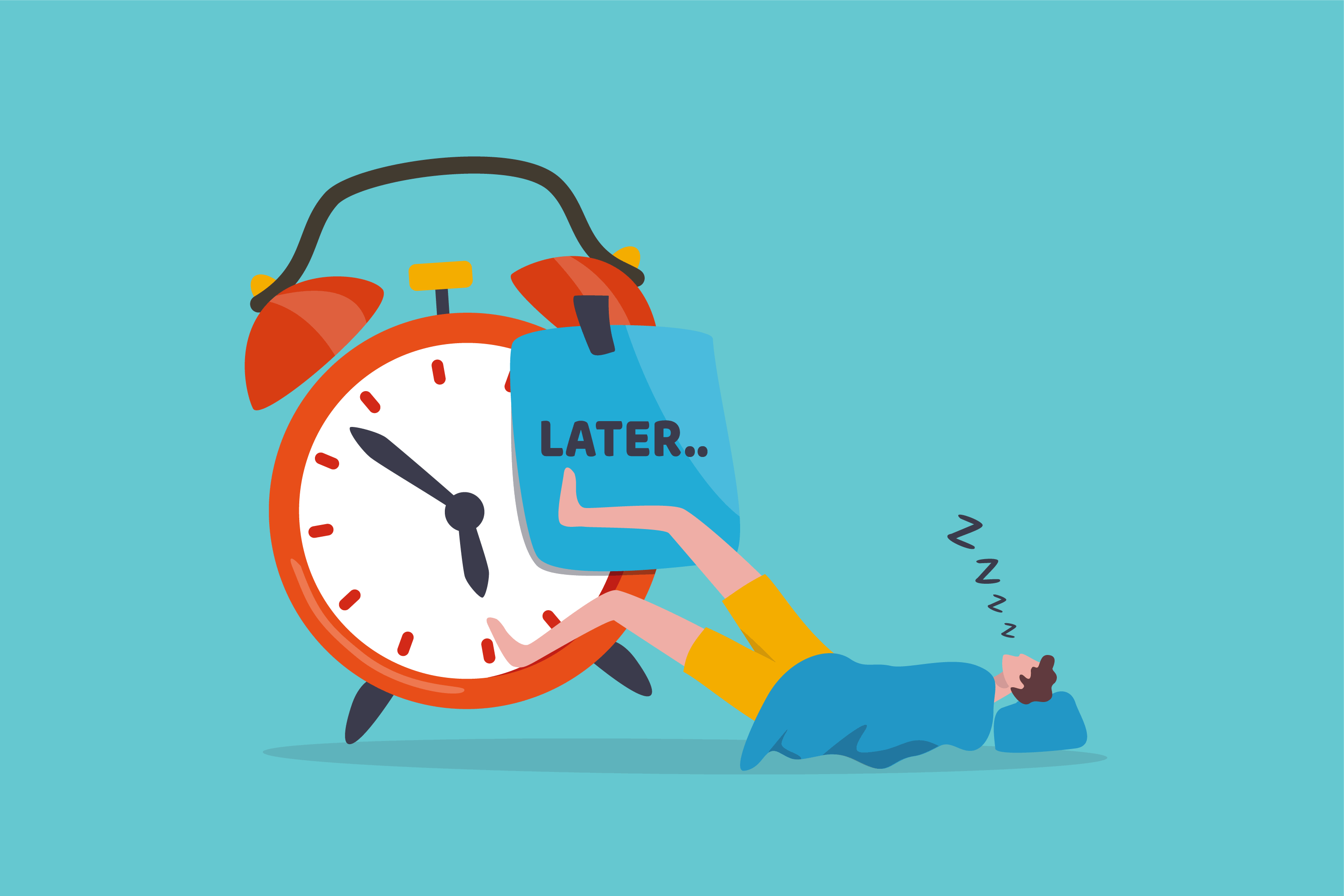
People who regularly procrastinate might find it fuels their anxiety. Putting off tasks can lead to a looming sense of dread, increasing stress and the burden of unfinished tasks. Breaking down tasks into manageable steps can help alleviate this anxiety-inducing habit. By taking proactive steps to plan and organize, individuals can create a clear path forward that reduces overwhelm. Setting small, attainable goals can foster a sense of accomplishment and encourage momentum. Additionally, prioritizing tasks and setting realistic deadlines can provide structure and reduce ambiguity. Implementing such strategies not only assists in preventing procrastination but also cultivates a more positive, stress-free approach to managing responsibilities. Embracing these practical techniques can turn what once felt like an insurmountable obstacle into a manageable and fulfilling journey toward productivity..
Lack Of Physical Activity
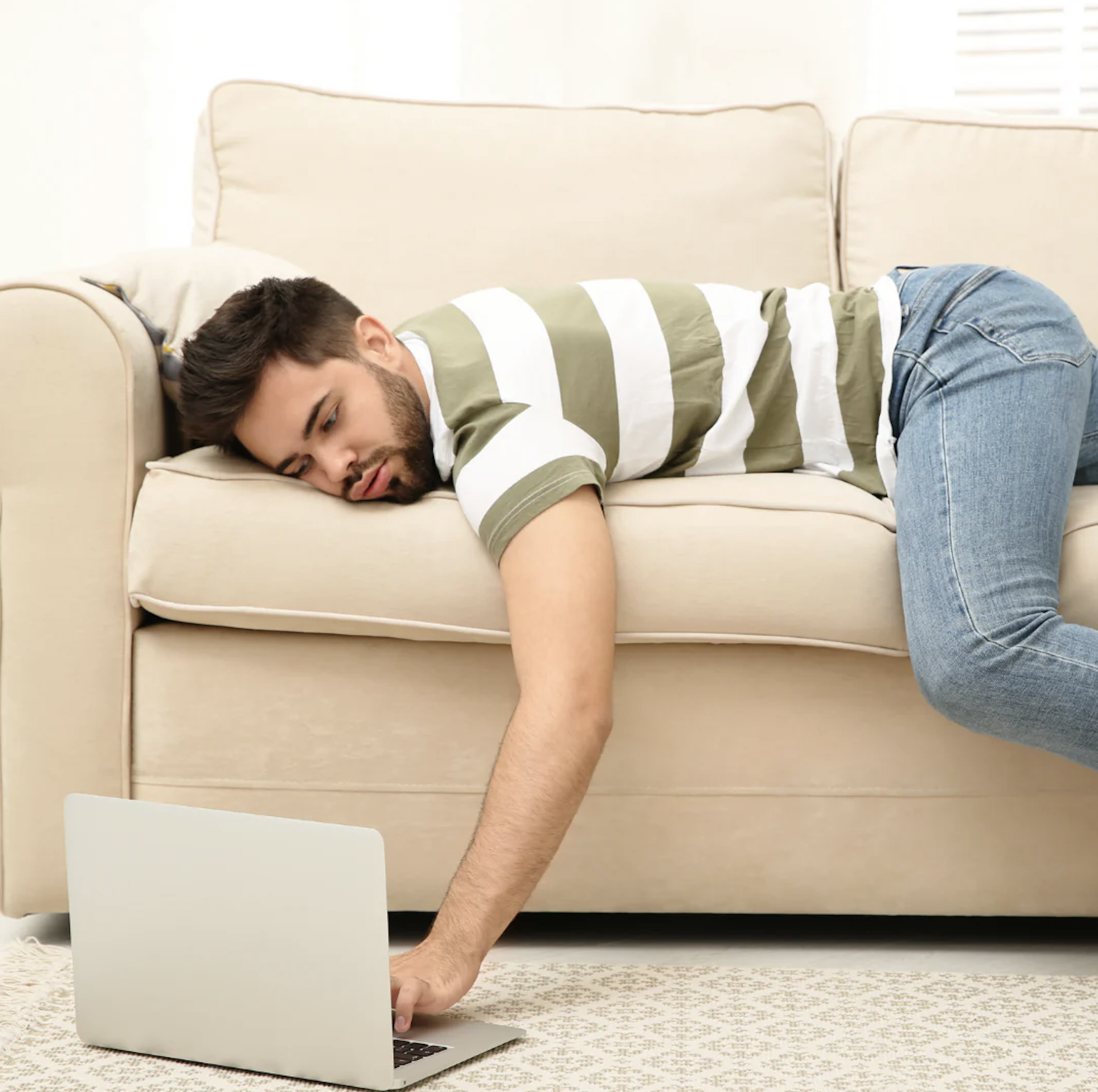
Another detrimental habit that exacerbates anxiety is the tendency to maintain a poor sleep schedule. Sleep is crucial for mental health, and insufficient rest can magnify feelings of stress and worry. Over time, a lack of quality sleep can diminish cognitive function, making it harder to cope with daily challenges and heightening anxiety levels. By prioritizing a consistent sleep routine, individuals can experience improved focus, enhanced emotional regulation, and a more resilient mindset against stressors. Establishing a bedtime ritual and ensuring adequate sleep can serve as a foundational step in managing anxiety effectively..
Negative Self-Talk
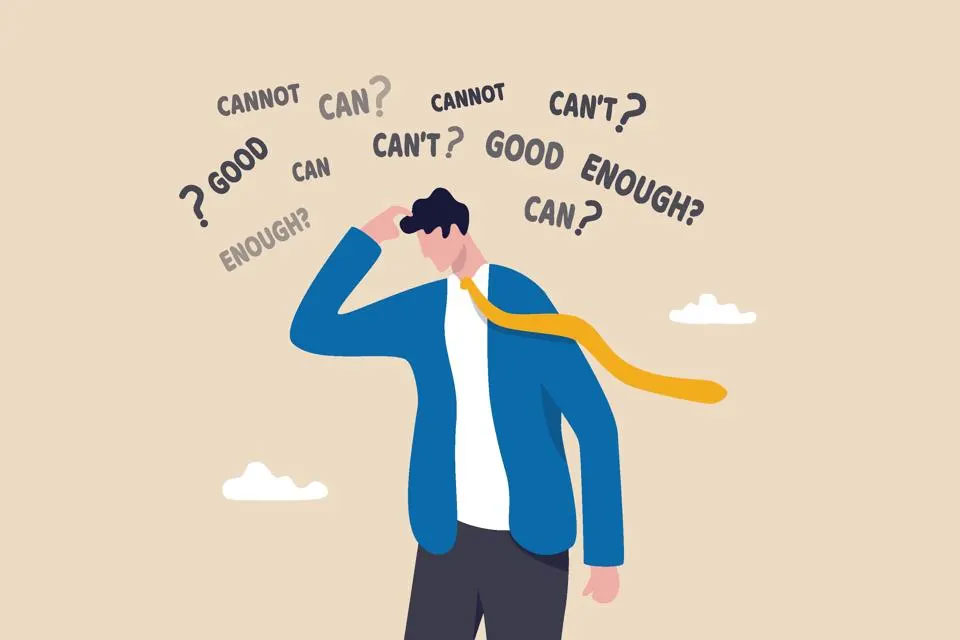
Negative self-talk and maintaining overly critical self-perceptions can contribute significantly to anxiety. This habit of internal criticism fosters a negative self-image, making it difficult to cope with stress effectively. The relentless barrage of self-doubt and criticism can create a mental environment where confidence is eroded and minor setbacks feel insurmountable. As individuals become trapped in this cycle, their ability to approach challenges with resilience diminishes. Over time, this can contribute to a pervasive sense of inadequacy and fear of failure, amplifying anxiety and making it harder to find joy or satisfaction in achievements. Breaking free from this pattern involves developing self-compassion and challenging negative thought patterns, paving the way for a healthier, more balanced self-perception that empowers individuals to face stress with greater ease..
Multitasking
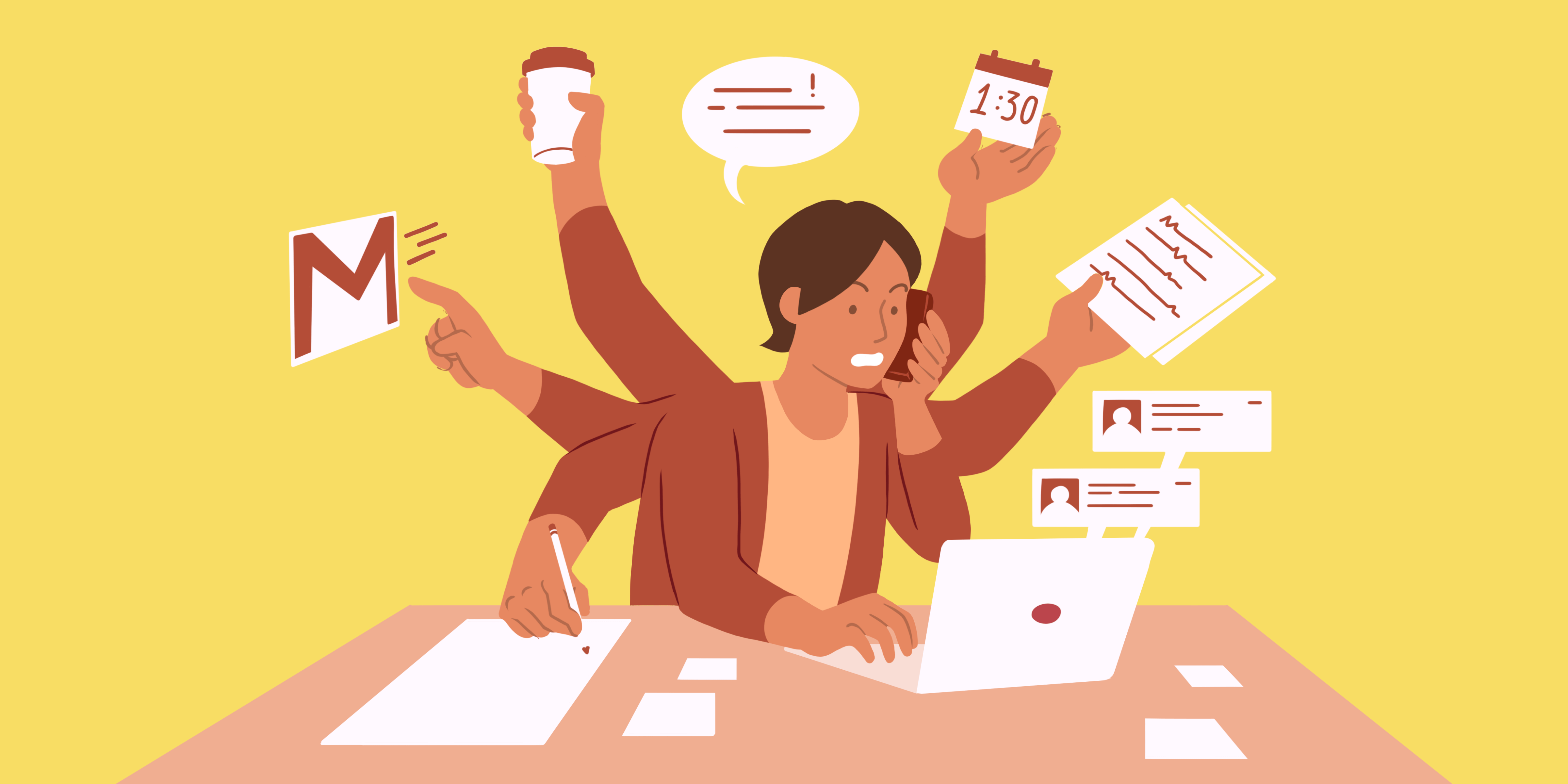
Despite the common perception that juggling multiple tasks simultaneously can maximize productivity, multitasking often leads to heightened stress and anxiety due to the continuous shifting of focus. This divided attention can result in decreased efficiency and a higher likelihood of errors, as the brain struggles to switch between different cognitive demands swiftly. Conversely, dedicating our full attention to a single task allows for deeper concentration and a clearer understanding of the work at hand, ultimately enhancing performance and reducing the mental burden. By prioritizing tasks and methodically addressing them one by one, individuals can foster a more structured and calm approach to their workload, leading to a more satisfying and productive experience. Embracing a focused, singular approach can be the key to not only achieving better results but also maintaining mental well-being in the face of ever-increasing demands..
Neglecting Self-Care
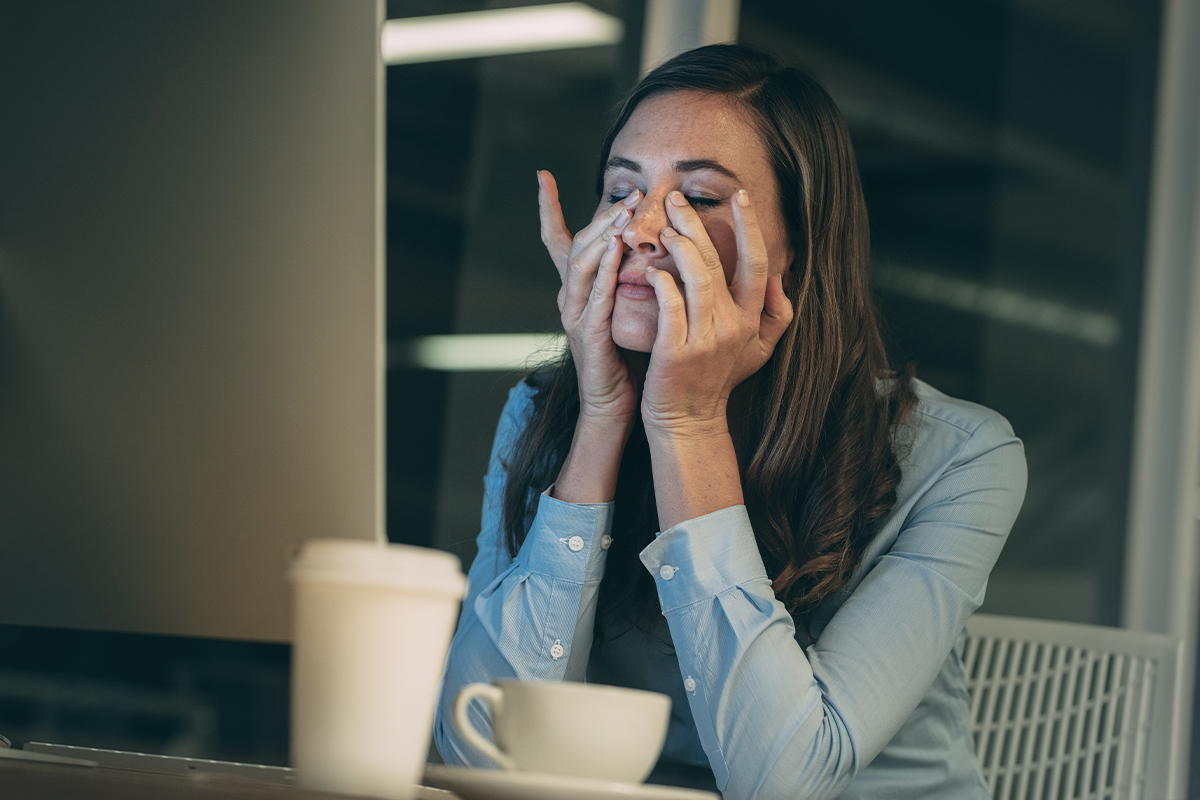
When self-care is neglected, the foundation of our mental and physical well-being can become unstable, further intensifying feelings of anxiety. Engaging in poor nutritional habits can lead to energy imbalances and mood fluctuations, making it harder to cope with stress. Dehydration can exacerbate symptoms of anxiety, such as irritability and difficulty concentrating, while failing to take regular breaks from work or daily responsibilities can lead to burnout. It is essential to recognize that self-care is not a luxury, but a necessity that helps build resilience against anxiety. By prioritizing activities that nourish our body and mind, such as getting adequate sleep, practicing mindfulness, and engaging in regular physical activity, we can create a supportive environment within ourselves, empowering us to better manage stressors and maintain a sense of balance..
Breaking free from these 12 common habits that make anxiety worse involves self-awareness and a commitment to healthier routines. By identifying the habits that exacerbate your anxiety, you can start implementing small, consistent changes to find relief. Cultivating a lifestyle that prioritizes mental well-being can significantly reduce anxiety, leading to a more balanced and peaceful life.

